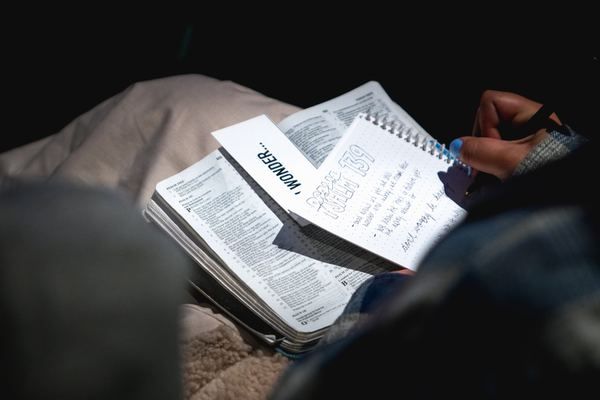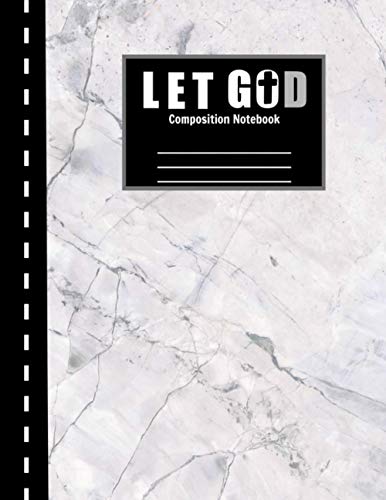
When I first started studying the Bible, I was quickly overwhelmed by all the different topics I could choose from. I didn't know where to start, so I ended up just reading through the Bible chronologically. While that was helpful in some ways, it didn't really help me to understand the Bible deeply or to apply its teachings to my life. As I started to have a deeper desire to develop a deeper relationship with Christ, I felt the Holy Spirit prompting me to study the Bible in a different way.
I realized the best way to grow in my faith was through seeking spiritual maturity by truly studying the Bible. Over the years, I have come up with 40 differ Bible study topics that are sure to help you grow in your faith and knowledge of the Bible. Whether you're a new believer or a seasoned Christian, my prayer is that there is something on the below list to help you grow in your faith and knowledge of the Bible.

Why Should You Study the Bible?
There are several advantages to reading the Bible. First, the Bible reveals God's character. By reading the Bible, w e witness God's holy, unchanging, faithful, gracious, and loving character towards us. Second, reading God's word on a regular basis reorients our thinking, allowing us to mature as Christians (Ephesians 4:14-16; Romans 12:1-2). Third, reading the Bible enables us to do the good works God is calling us to do (2 Timothy 3:18). Click here to check learn about other benefits of reading the Bible. )-(3).jpg)
What Supplies do you Need to Study the Bible?
The minimum supplies you need to study the Bible is a Bible, a notebook and a writing utensil. Other supplies that may be beneficial to studying the Bible are briefly explained below:
Concordance
Concordance can help you find all the words in the Bible and all the verses they appear. I personally own the Strong's Exhaustive Concordance of the Bible but other people prefer Young's Analytical Concordance.
Bible Dictionary
Bible dictionaries can help you make sure you understand words that you are unfamiliar with. Some Bible dict definitions of the original Hebrew or Greek words. Scripture references, pronunciation guidelines, parts of speech, word derivations, synonyms, and brief contexts. If you are looking for a good Bible dictionary, I recommend any of the following: Strong's Bible Dictionary, Smith's Bible Dictionary, The Complete Word Study Dictionary, Vine's Expository Dictionary, and Thayer's Greek-English Lexicon.
Commentaries
Bible commentaries are meant to be used in conjunction with the Bible to provide greater understanding, explanation, illustration, and historical context.
 Pin It & Save It for Later!
Pin It & Save It for Later!
40 Different Topics for Bible studies
While the above supplies will aid in studying the Bible, you really only need your Bible and a note book. The below list can also be used to study God's Word either alone or in a small group.
Search the Bible by topic - Find and note every scripture related to love for example.
Read the Bible chronologically (not the order it's put together). There are many great chronological Bibles available; however, I love the Chronological Life Application Study Bible because of all the additional study notes.
Study a specific person - Most of the people on the Bible appear in more than one scripture, there's more to learn.
Find and make note of women in the scriptures.
Search for references to Christ.
Search for “if/then” statements.
Study the scriptures associated with a hymn.
Study the verses that your pastor covered on Sunday.
Read and write down one single verse a day.
Write down questions you have from your church service. Search for answers to those questions on a different day.
 Health Ads by
Health Ads byPretend to prepare a talk about a topic using the scriptures.
Write down and highlight certain themes with different colors (e.g., red = Christ, blue = blessings).
Read straight through like you would fiction.
Write down a question in your notebook and read with that question in mind.
Search for patterns and repetitions in the scriptures.
Search for and write down lists in the scriptures.
Think about how the scriptures you've read apply to your daily life.
Have a Bible study with an individual (such as a family member) in mind and make notes for and about them.
Look for and write down the facts - dates, places, names, etc.
Stick a map in your notebook and make notes on the map as you read.
Mark any time the scriptures say “joy” or “happiness” and record what led to those things.
Draw what you read - pictures, doodles, things that remind you of the scriptures you're reading.
Write your own chapter headings at the top of each chapter once you've read it.
Search for things you're thankful for and keep a running list of your blessings.
Highlight two words in each verse that you think are most important.
Highlight or draw a box around the most important verses in each chapter.
Read the scriptures in a different language write the translation, you'll learn a new language along with God's Word.
Do a A-Z topical Bible study, one letter per day. On day 1, pick a topic that begins with A to study and so on.
Use a Bible study guide.
Pick one scripture a week to memorize, study, and ponder.
Read and write down at least one thing you learned from your study that day.
Read the scriptures out loud and write down the verses that stand out to you.
Create a Bible study group text where everyone texts something they learned to each other each day. You need a cellphone for this one, but you can get your daily scripture from your notebook.
Replace people's names in the scripture with your own (or you) in your notebook and read that way.
Make an actionable goal (e.g., be more patient) for each day (or week) based on something you read.
Ask and answer who, what, why, where, and when for the verses you read.
Do an English class style analysis on what you read - plot, characters, setting, rising action, climax, resolution, etc.
Translate a verse into modern English, how it would be written today.
Write down 1 scripture per day in a notebook you've categorized. This way you'll eventually have the entire Bible written down in your own writing. Categorized by topics, people or places.
Final Thoughts on Topical Bible Studies
These are just some of the ways you can study God's Word. There are many, many more. I want to encourage you today to dig into the treasure that God has given you. Formal training or previous experience with Bible study is not required to start studying the Bible. All you need is the willingness to start. And if you ever feel intimidated, remember that you have the Holy Spirit who enlightens the eyes of your heart and enables you to understand the inspired Word of God.
P.S., if you are looking for a new Christian Composition Notebook, check out our collection below. Each journal measures 8.5" x 11" (the size of standard paper, includes 110 pages (55 sheets) that are wide ruled and numbered. Numbered pages are great because they allow you to easily find ideas. I recommend using either the first or last pages to keep track of all your ideas.
Let God Composition Notebook Jesus Is Not Just A Sunday Thing
Jesus Is Not Just A Sunday Thing Jesus Is My Superhero
Jesus Is My Superhero A.S.A.P. - Always Say A Prayer
A.S.A.P. - Always Say A Prayer Do Not Despise These Small Beginnings, For The LORD Rejoices To See The Work Begin! Zechariah 4:10:
Do Not Despise These Small Beginnings, For The LORD Rejoices To See The Work Begin! Zechariah 4:10:
P.S.S. Which Bible study topic on this list are you most interested in? Let me know in the comments below!
About the Author:

Corine Williams, Ph.D. is Clinical Psychologist that is currently seeing clients in the States of Maryland, New Jersey, and New York. You can find out more about her practice by visiting www.therapyforchristians.com/corinewilliams. In addition to providing individual therapy, Dr. Williams is also passionate about writing books and designing merchandise that educate, uplift, and normalize mental health subject in the Christian community. You can find out more about her at www.booksbycorine.com or by visiting her amazon profile here: https://www.amazon.com/Corine-Hyman/e/B00AWZ5FL2
Help us increase mental health awareness in the Christian community by donating through our paypal link here: www.paypal.com/therapyforchristians, joining our mailing list by clicking below, or join our provider list here: Provider listing
Disclaimer: the information, including but not limited to, text, graphics, images and other material contained on this article are for informational purposes only. No material on this site is intended to be a substitute for professional medical advice, diagnosis or treatment. If you are looking for a Christian counselor near you, please check out our directory located here: Christians Therapist Near Me
Featured Christian Therapists
Specialty Psychiatrist or Nurse Practiti... Located in Chesapeake, VA
View Listing.png)














